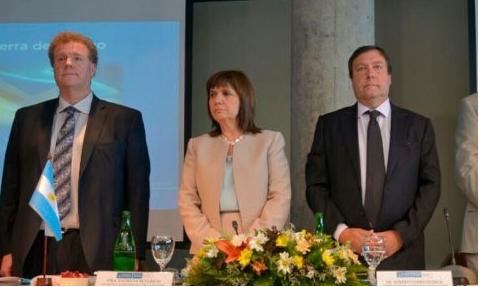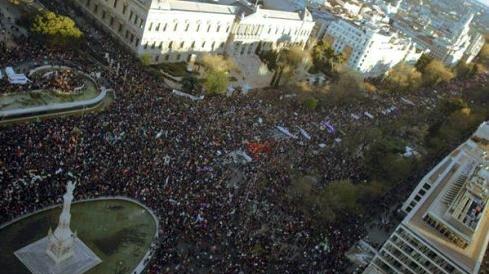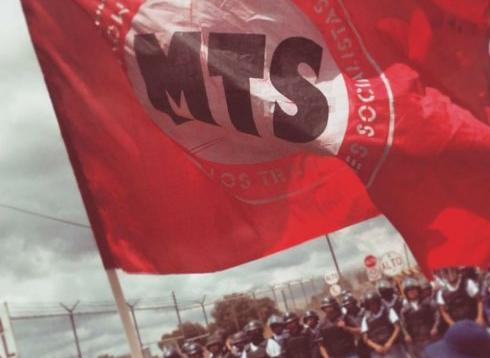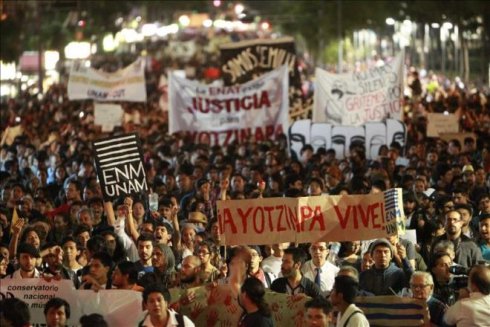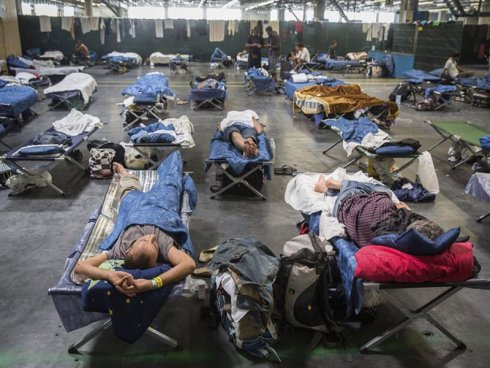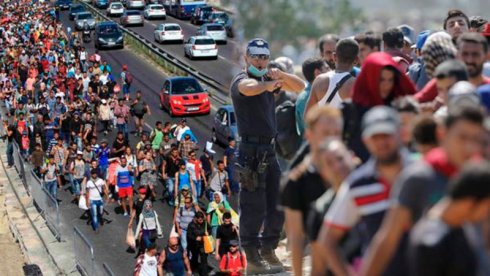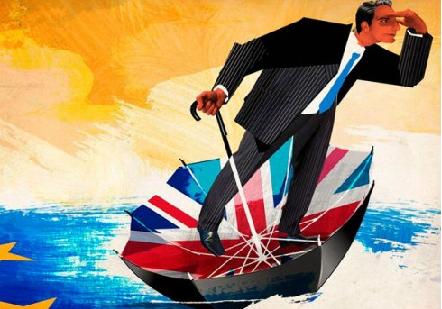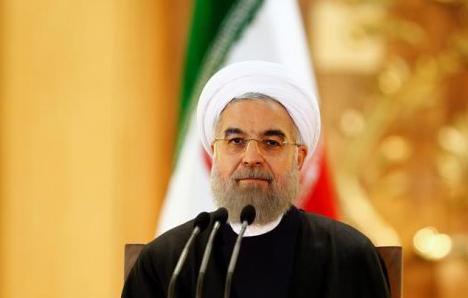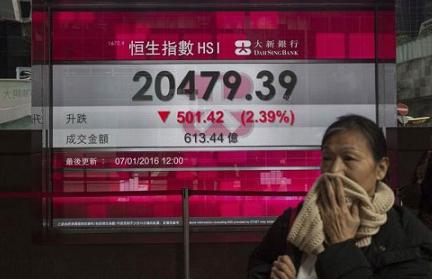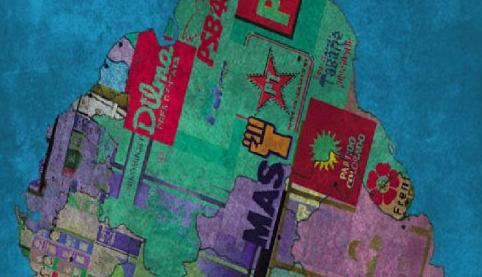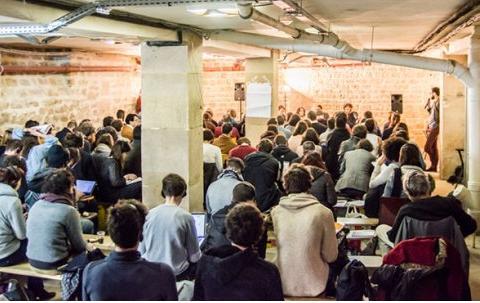After the Attacks and the Historic March of January 11th
A Breath of Fresh Air for Hollande and the Fifth Republic. But for how long ?
16/01/2015

The attack against Charlie Hebdo and the anti-Semitic hostage taking in a kosher supermarket at Porte de Vincennes to which the immense republican marches of this past weekend responded have set the stage for Hollande’s comeback on the front of the political scene. In only a few days, the conjuncture has been profoundly modified. It remains however to be known if this situation will consolidate itself.
These past few days, Hollande has had to confront his most serious crisis since the beginning of his presidential mandate. And, for most analysts, he performed faultlessly. The situation as such reinforces two of the most challenged aspects of Hollande’s personality since his election, his authority and his presidential stature. With Sunday’s Parisian march, Hollande also hoped to reestablish a strong link with the left-wing people who had chosen him, more so by default against Nicolas Sarkozy, than by adhesion, during the second-round of the Presidential election in 2012. At last, while France’s position has declined these past years on the international playing field, the presence of more than 40 heads of state and of government reinforced the idea of Paris’ new centrality, geopolitically speaking.
The Post-attack Formula according to Hollande : Authority, the Left-wing, and Paris : World Capital
Concerning the reaffirmation of his presidential stature, Hollande went to the site of the attack against Charlie Hebdo’s editorial board, displayed permanent concern for the progress of the manhunt for the suspects and his two presidential speeches were followed by more than 20 million spectators. In parallel, no false-note was heard within the government, which stood united behind the head of state. The dramatic character of the crisis erased, in but a few days, the hesitating image of an executive lacking authority, which had been attributed to the President over the past months.
Concerning his relationship with the “left-wing people”, Hollande succeeded in rebuffing the image of coldness and distance that oftentimes characterized him. Neither “without teeth,” nor indifferent, by being in communion with the families of the victims, by taking the emergency doctor, Patrick Pelloux, close to the Charlie Hebdo team and who survived the attack, in his arms. Hollande came up trumps in the media arena. He also came up trumps with regard to the compact crowd that hurried to Sunday’s march, a composite crowd, more representative of the Socialist Party’s electoral and social base than of the working class, a mix of the middle class and salaried people, portraying themselves as the heirs of the principal symbols of the old reformist left, references ranging from the Republic to French secularism and without forgetting freedom of expression.
On the third point, the presence, decided in the course of hours, of major European and international leaders reinforced Hollande who for the first time put on the Gaullist clothing of a President of the Fifth Republic with international status. “Today, Paris is the capital of the world” : the presidential declaration was repeated incessantly by the worlds’ main media outlets.
A Change of Décor
This reinforcement of the presidential figure profoundly modifies the political panorama. The French political spectrum was until now characterized, on one hand, by a crisis of the two-party system (Socialist Party and Union for a Popular Movement) which expressed itself fairly paradigmatically through the scores of the National Front during the European elections, and, on the other hand, by Hollande’s extremely low popularity rating, making him the weak link of not only his own government but also of the regime itself faced with a possible crisis. Nevertheless, the ultra-reactionary nature of the attacks, the first attack committed against journalists and therefore against the liberty of expression, the second one being openly anti-Semitic, as well as the management of the crisis by the President and the exploitation of generalized indignation in public opinion, all played in Hollande’s favor.
A certain number of gray areas have since been clarified politically speaking. It is today unlikely that the left will organize primaries and that Hollande will not be able to present himself for re-election in 2017, which had been until the attacks absolutely uncertain. Not only the ambitions of Manuel Valls have had to be downgraded, but also those of the internal opposition of the Socialist “Frondeurs” and the vague desires of Martine Aubry to present herself as an alternative leader within the majority.
The situation has left the field open, at least for the moment, for an easier advance in terms of counter-reform efforts. Concerning the Macron Bill, introduced before Parliament for discussion this week, the panorama is much more open for being able to pass all, or almost all, of what the bill contains. The reactionary national unity to which all union leaders yielded disadvantages the former who thought themselves, with the help of the “Frondeurs,” capable of snatching a few minimal amendments within the legislative framework and, in that way, of pretending to save face.
Concerning the State and the Regime
Hollande’s reinforcement also concerns the regime of the Fifth Republic. Until very recently, the bourgeois center composed of the Socialist Party (on the left) and the Union for a Popular Movement (on the right) was losing ground to a “republicanized” far-right on the path of de-demonization. The historic January 11 march put a stop to the National Front’s progress, at least for the time being. Although it is not excluded that the National Front could capitalize on the situation during the March cantonal elections. The progress of the National Front, which was seeking to win respectability, has been hampered by the fact that at the last minute, Marine Le Pen was not invited to the Parisian Republican March for National Unity. We can see the proof of this in the media’s treatment of the National Front, extremely complacent up until now. Thus, during Europe 1’s morning show, journalists did not hesitate to tackle the heir of the Le Pen camp by asking her if she “was not ashamed.”Furthermore, the very nature of the weekend’s marches reinforce bourgeois-republican values more so than fascist trends. In spite of a slightly simplistic analysis within the far-left which focuses on the intensification of all too real racist and islamophobic tendencies in society, with, for example, the multiplication of attacks committed against mosques and Islamic places of worship, it is above all else the bourgeois republican regime and its state-backed racism that is reinforced.
For the working world, this is very bad news. Effectively, since the strikes of May and June 1936 until the protests of May 68, the largest strike for the Western labor movement in the 20th century, the main moments of class struggle in French history have been canalized and pacified not only by the collaboration of the labor movement’s counter-revolutionary organizations, starting with the French Communist Party, but also through bourgeois republican-democratic mechanisms, starting with the call to the polls in 1968.
The other big winner of the situation is none other than the repressive forces. Pillars of the bourgeois state, the state security police forces (CRS) were the media’s preferred heroes of the weekend, like New York City firemen after September 11, 2001. Far from the abuse and classic insults of traditional marches, the police and the CRS are no longer the SS, but acclaimed on the corteges’ fringes. The same CRS who assume the repression of marches in general, who are responsible for the murder of Rémi Fraisse, and who undertake daily the hunting of Rroma and undocumented immigrants.
This reinforcement of the Fifth Republic, yet somewhat damaged, is taking place on the ideological ground of the right and far-right, starting with the questions of security. Certainly, Valls is opposed to the adoption of a French “Patriot Act,” in the same way as the UMP rejected the National Front’s proposal to reinstate the death penalty. Nevertheless, the regime’s republican Bonapartization is being reinforced. We can see proof in the decision to maintain the Vigipirate Plan at “attack alert” level in the Parisian region or in the fact that Jean-Yves Le Drian can welcome the fact that the army deployed at home is undertaking a major military operation similar to the “OPEX” that France has undertaken in its Françafrique backyard. To this we must add the liberty killing measures on the horizon that are called for loud and clear by all the policemen’s unions to which the media yielded generous amounts of air time in the past few days.
A Reactionary Watershed Not Yet Consolidated
It is still too early to say if this conjuncture is going to transform itself into qualitative progress for the bourgeoisie in the political and social ratio of power and to know how far it will go. Everyone still has in mind how the neo-Bonapartism of a George W. Bush finished by foundering in Iraq in the beginning of 2004 when the Republican administration insisted on going much further than what the balance of power could allow for by recolonizing a country. France, which has slimmer military capacities than the United States, is already over-deployed in numerous theaters of international operation. Nationally-speaking, furthermore, the labor movement’s democratic traditions as well as its traditions of struggle are much more developed in France today than in the United States in 2001. It is this richness that must be mobilized in order to stop the regime’s reactionary turn from consolidating itself.
The French bourgeoisie and its political personnel must, moreover, face important structural difficulties, both economically- and socially-speaking, through what the media calls “the question of immigration.” This is, in reality, the current generalized expression of capitalist globalization and the existence of nation-states, which generate enormous contradictions and problems in terms of social stability, not only in France, but throughout Europe. These difficulties are translated by the reinforcement of nationalist, sovereignist, and chauvinist tendencies that do not directly express the interests of the strongest and most concentrated sectors of capital but serve them all the while because of the division that they create among the exploited and oppressed. The authority of Brussels appears all the more challenged and certain gains for the bourgeoisie, like the Treaty of Schengen, are called into question.
It is for all these reasons that we wrote about the “attempt to resurrect the senile Republican Front.” In this sense, it is more than likely that this “restoration” of Hollande and of the Fifth Republic will have less of an impact than that of 2002 when Jacques Chirac was elected over Jean-Marie Le Pen after April 21. Chirac and his entourage were however quickly confronted by growing difficulties and were forced to abandon the CPE, paving the way for the Bonapartist alternative that was Sarkozy.
As such, the tendency towards political polarization continue in spite of Hollande and Angela Merkel’s relatively successful attempt at stopping them. If they offered themselves a Sunday walkabout in the streets of Paris and try to stop the sinking of Europeanism, they are nonetheless coming up against a certain level of generalized Euroskepticism, while the European Union is going to have to face, in the coming days, a revival of the seemingly never-ending Greek crisis.
Combat the Liberty Killing and the Reactionary Shift
Initially, the context will be more adverse for struggles before a reinforced regime and a reinforced state and in the framework of a climate of national unity that could very well endure. Preventing this reactionary shift from consolidating itself and institutional racism, the far-right, Islamophobia and anti-Semitism from dividing the working world and the youth at a later stage is an urgent task which the organization of the labor movement, starting by the far-left, must face. This is done first and foremost by combating racism, in all its forms, for the regularization of undocumented immigrants and for the freedom of movement within the country and within the EU. This combat must be tied to all the struggles against austerity measures and the anti-workers offensive currently underway, as well as against all imperialist military interventions, be it those in preparation as it is in the case of Libya, or those already underway, starting with Mali, the Central African Republic, and Iraq. Before the increase of racism and fundamentalism, starting with that of “homegrown” Catholics of the “Manif pour tous,” in the face of national unity, it is essential to oppose the unity of all workers and all exploited, with or without papers, French or immigrant, above and beyond our religious beliefs.
12/1/2015.
